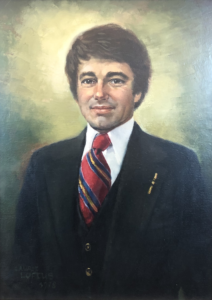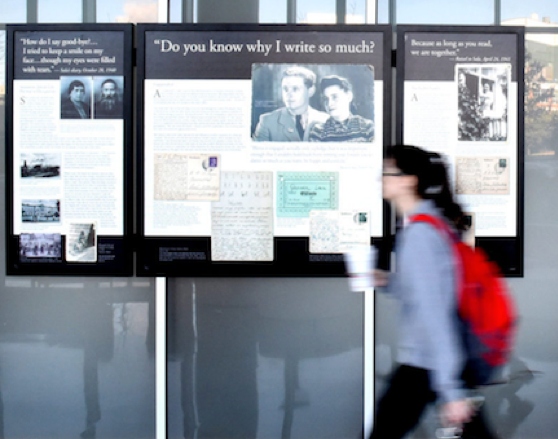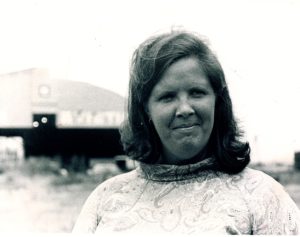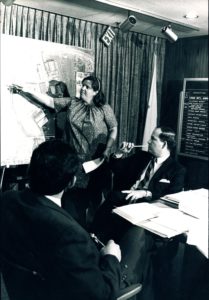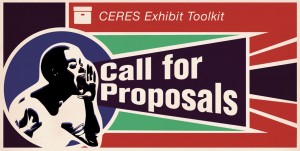
The Northeastern University Library’s Digital Scholarship Group (DSG) invites Northeastern faculty and staff to submit project proposals for new research projects using the CERES Exhibit Toolkit. We also welcome proposals for using CERES in classroom assignments. The deadline for proposals is April 19, 2019 for projects beginning in the fall of 2019.
CERES enables the creation of complex scholarly narratives and exhibits through websites that dynamically integrate images, text, video, and other digital materials into a range of page layouts and possibilities for contextualization, while keeping those base digital materials preserved in a long-lasting archive. Visit our projects page for a full list of sites and exhibits that have been built using CERES.
CERES is designed to be easy to use, and our goal is to empower you and members of your project to be self-sufficient. Accepted projects receive in-depth consultation and training, but we also expect project teams to provide labor for things like digitizing items or creating content for the website. Part of the proposal process will be discussing with you ways to find sources of labor, so please don’t let a current lack of labor be a barrier to application. If you already have work study or interns, that is a bonus.
CERES supports many different features and activities, including:
- Preservation and publication of long-term digital collections of primary source materials like documents, videos, letters, or interviews, such as the Holocaust Awareness Committee at Northeastern University or the Lower Roxbury Black History Project.
- Classroom assignments where students contribute exhibits (singly or in groups) to a long-term cumulative space persisting from year to year, such as Literature and Digital Diversity, or adding to an existing CERES project that invites thematic contributions, such as the Early Black Boston Digital Almanac.
- Exploration and integration of items from other existing digital collections, like the Digital Public Library of America, expanding a project’s ability to investigate concepts across collections.
- Creation of long-term online research portals and exhibits that couple contextual scholarly narratives with special interactive features like maps, timelines, or image carousels, such as Thoreau’s Journal Drawings or the Northeastern University History timeline.
Over the summer and fall, we will be making some major improvements to CERES and adding new features, including connections to additional data sources (like Europeana and Wikimedia Commons) and podcasting support, so projects can also be imagining how they might take advantage of those options.
Applicants will be notified by May 17, 2019, and we will schedule planning meetings in early summer. We are happy to meet with anyone interested in submitting a proposal to talk about possibilities. For more information, please contact us at dsg@northeastern.edu.
Apply here: http://dsg.neu.edu/projects/new-projects/project-application. We look forward to working with you!
About CERES
The Northeastern University Library’s Digital Scholarship Group is currently engaged in a long-term strategy to build a repository infrastructure that supports community engagement with digital materials: the Community Enhanced Repository for Engaged Scholarship (CERES). The CERES Exhibit Toolkit is a WordPress plugin and theme developed by the Digital Scholarship Group. This research and publishing platform will support what we have identified as the most common tasks in the digital humanities workspace: annotating, cataloging, text encoding, proofreading, transcribing, translating, and publishing. The end result will be a contributory and collaborative repository environment for many different types of users, which ideally will encourage community engagement with digital objects. The CERES Exhibit Toolkit is one component of this expanding repository infrastructure that will allow CERES project teams to easily publish their materials on the web. Read more here.
 Dan Cohen, Dean of the University Library, has penned an op-ed for The Atlantic about the value of digital collections, in response to the announcement that the Obama Presidential Library will comprise a digital collection, available online, as well as a physical research center in Chicago.
Dan Cohen, Dean of the University Library, has penned an op-ed for The Atlantic about the value of digital collections, in response to the announcement that the Obama Presidential Library will comprise a digital collection, available online, as well as a physical research center in Chicago.